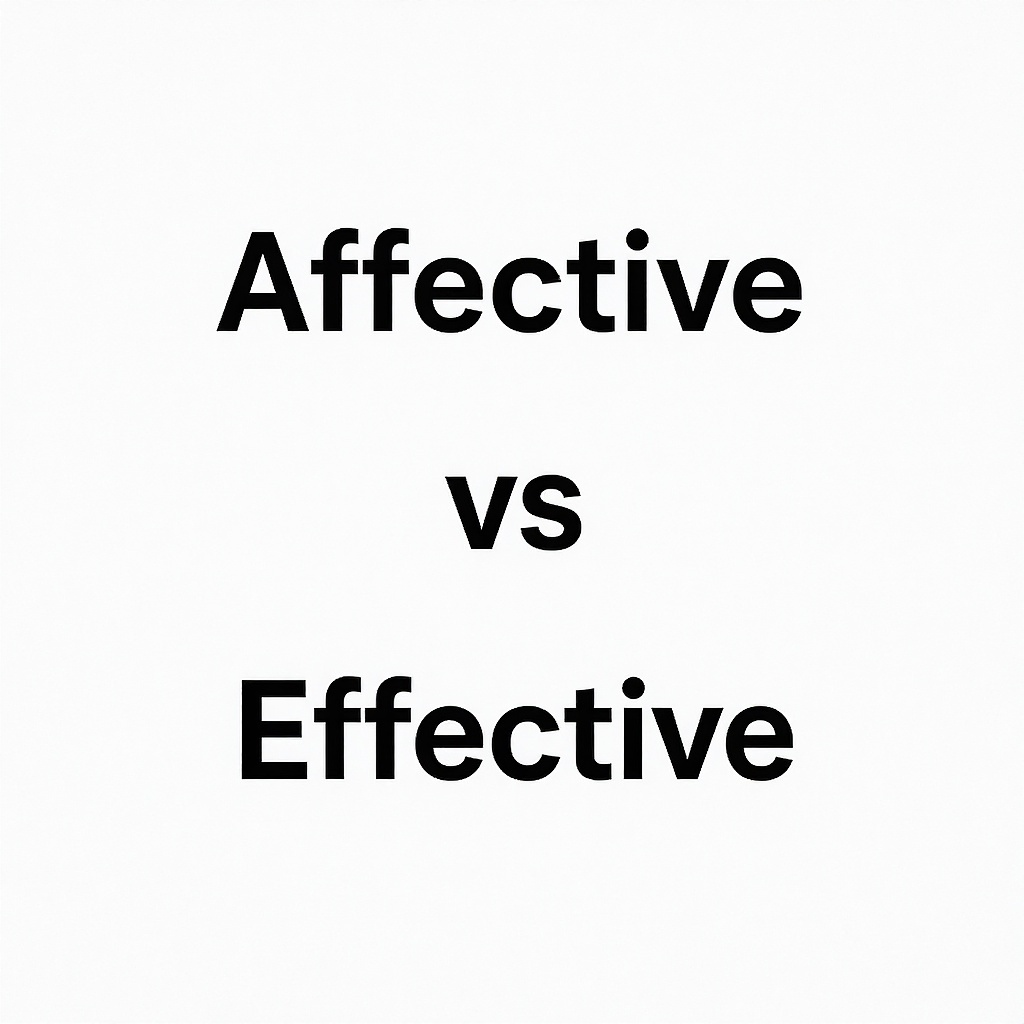"Affective" Vs "Effective" - How to Use Them

English can be tricky when words look similar but mean very different things. Affective and effective are a perfect example. They sound alike, but their usage and meaning are not interchangeable.
Midoo AI will help you understand the difference and give you examples so you can use them confidently.
Affective – Related to Emotions
The word affective relates to feelings, emotions, or moods. You often see it in psychology, education, or discussions about emotional responses.
Examples of “affective”
- His affective response to the news was surprising.
- Teachers should consider affective factors when helping students learn.
- The film had a strong affective impact on the audience.
- She showed affective empathy toward her friends.
- Music can influence affective states like happiness or sadness.
💡 Tip: Think affective = emotions or feelings.
Effective – Producing Results
The word effective refers to something that works well or produces the desired result. It’s about success, efficiency, or impact, not feelings.
Examples of “effective”
- The new medicine was highly effective against the disease.
- Time management is an effective strategy for productivity.
- Her speech was effective in convincing the audience.
- The teacher used effective methods to explain the lesson.
- Exercise is effective for reducing stress.
💡 Tip: Think effective = works well / produces results.
Quick Comparison Table
| Word | Meaning | Example |
|---|---|---|
| Affective | Related to emotions or feelings | His affective response was strong. |
| Effective | Produces desired results / works well | The medicine was highly effective. |
Common Mistakes
❌ The new policy had a strong effective impact on emotions. ✅ The new policy had a strong affective impact on emotions.
❌ Meditation is an affective method to improve focus. ✅ Meditation is an effective method to improve focus.
❌ The teacher’s lesson was very affective in helping students understand the topic. ✅ The teacher’s lesson was very effective in helping students understand the topic.
FAQs
Can “affective” and “effective” ever be used interchangeably?
No. Affective relates to emotions, while effective relates to results. They have different meanings.
Is “affective” common in everyday English?
It’s more common in academic, psychological, or educational contexts.
Is “effective” only for methods or tools?
No. It can describe anything that works or achieves the intended result.
Can emotions be effective?
Not directly. Emotions themselves are affective, but actions based on emotions can be effective.
How can I remember the difference?
Think “affective = affect = feelings” and “effective = effect = result.”
Final Thoughts
The difference is simple once you remember the key ideas:
- Affective = relates to emotions or feelings.
- Effective = produces the desired effect or result.
Next time you’re writing or speaking, just ask yourself: Am I talking about feelings, or about results? That one question will help you pick the right word every time.